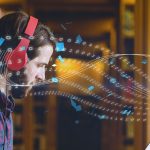For more than 10 years, the Dale! project in Argentina has been fighting illiteracy among children who haven’t learned to read and write despite being in school. Its freely available materials provide them with a permanent and didactic opportunity to learn in the context of extreme poverty. Beatriz Diuk, the founder of the program, comments that Dale! has grown so large that she’s unsure of its scope, but estimates it’s had an impact on several thousand children across the country. Globant developed a video game that accelerated the virtualization of the project to take it to its next frontiers, and today it has more than 45,000 downloads.
Breaking physical and digital barriers with learning
One day back in 2012, Beatriz started to share Dale! as part of her work as a researcher at CONICET. What she didn’t realize was that her teaching methodology would be so successful that it would force her initial team to transform itself into a civil association to continue growing the project. Communities both inside and outside Argentina were interested in using Dale! and, in response to this need, it went virtual.
First, a virtual course was developed to reach a wider and more geographically distant audience, and then Globant created a video game as part of the work with digital media. Globant’s role was essential to expand the efforts of teachers, who were struggling to make enough time for the children. The advantage of the video game was that it didn’t require as much dedication from educators to achieve the same levels of learning. Another important factor is that children love it, as they feel more familiar using their computers or tablets to educate themselves. The video game as a method got the kids excited about immersing themselves in the Dale! world and raised their level of concentration.
For Beatriz, the results highlight the importance of technology in education: “I believe that technology has the potential to make a great contribution, with tablets offering playful ways of learning, access to vast knowledge, and children’s libraries full of stories that would not otherwise be accessible. I believe that the impact of technology on education will continue to grow as long as we foster it and offer interesting, digitized proposals.”
A shared vision between Globant and Dale!
Beatriz had already been thinking for some time about the benefits of adding a video game to Dale! and, during the pandemic, the opportunity arose to work with Globant. Initially, the development was only for Windows but, considering that the most vulnerable children can only access a cell phone, the adaptation of the video game to Android was accelerated. Without losing quality, Globant made sure that the video game would work on low-end phones with poor Wi-Fi connection. Through the teachers, the link was shared with thousands of families who happily accepted the program, which was fundamental to strengthening educational opportunities at home.
The working relationship between Globant and Dale! was smooth because they both brought innovative ideas to improve the video game. Translating the project’s initial proposal into an intuitive video game was not an easy task, but thanks to the understanding and collaboration of the teams we achieved a high-quality result. As they saw proven progress in children, the Globant team was enthusiastic to continue raising the bar for the program, with excellent results.
For NGOs seeking to collaborate with companies and expand their impact, the secret lies in having a clear vision and knowing how to effectively convey the value of collaboration. It’s not always necessary to have all the details of the project defined at the outset, but it’s essential to communicate the purpose and expected results. Moreover, as the Dale! case shows, the most valuable aspect of these alliances is human connection. The collaboration with Globant allowed Dale! to take its educational approach to new heights and, in turn, the Globant team experienced the transformative feeling of seeing how their work had a positive impact on vulnerable children. In the end, it’s this synergy that makes it possible to create real change.
At Globant Labs, we focus on bringing to life this and other projects that use technology to create a sustainable future. Be Kind to Humanity is the framework where we reinvent our industry to make a positive impact by solving humanity’s most pressing problems.




